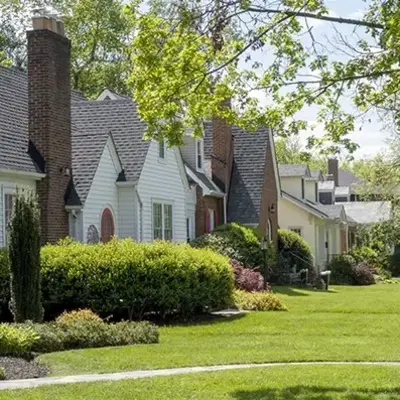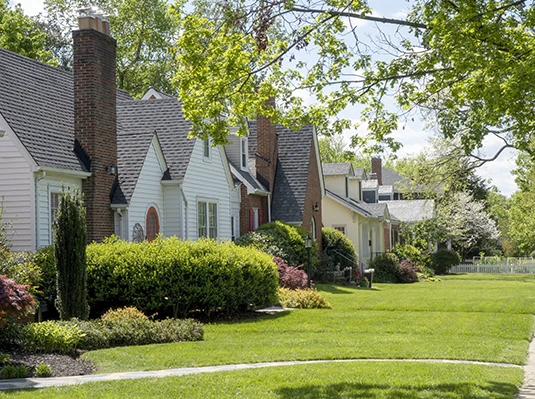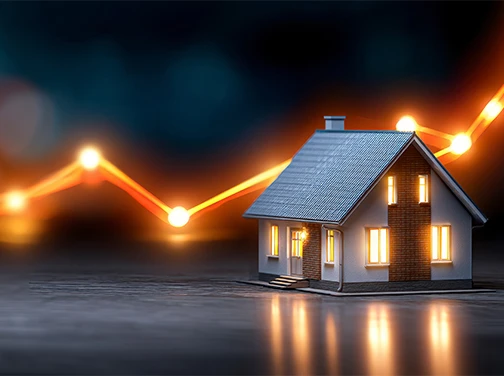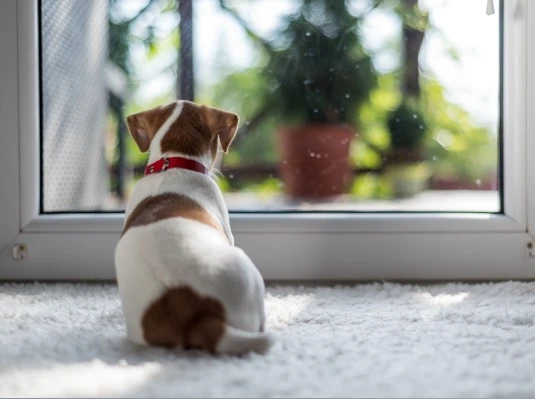Homeowners Insurance 101

Homeowners Insurance 101

You found a property you love, you managed to save a down payment, and you got approved by a lender. Now you need to find a homeowners insurance policy that meets your needs, but how do you know if a policy is the right one for you?
For most people, your home is your biggest financial investment. Having homeowners insurance is an important part of owning a home because it helps protect you from suffering a catastrophic loss. But what exactly is homeowners insurance, and how do you know if you have the right coverage?
Key Takeaways:
- Shop for homeowners insurance as soon as you have an accepted offer an a house, and ensure you’ve selected a policy early so there’s no delay in your home closing process.
- There is no standard price for home insurance, and the premium you pay will depend on the risk factors in your new home.
- Ask your agent about discounts and ways to lower the cost of your homeowners insurance, while ensuring you’re not skimping on the coverage you need.
When in the home buying process should I think about getting insurance?
For most home closings, you’ll need to prove you’ve secured homeowner’s insurance. It’s encouraged to start shopping for insurance immediately after you sign a purchase agreement. The more time an insurance company has in underwriting (the process of evaluating risks and potentially costly elements of your home), the more likely you’ll have the right coverage for your needs. Leaving a good amount of time to work with an insurance agent and compare quotes helps ensure your home closing doesn’t fall through due to a lack of insurance coverage.
What does a homeowners insurance policy cover?
A typical homeowners insurance policy breaks down into several parts, including:
- Dwelling coverage: This is the portion of your policy that covers the physical structure of your home. Typically, dwelling coverage is the most expensive part of your insurance policy.
- Other structures coverage: This is for the structures on your property like fences, driveways, detached garages, swimming pools, etc.
- Personal property coverage: This covers your belongings, both when they are in your home and when they are elsewhere. If your laptop were stolen out of your car or a fire in a storage unit destroyed your things, this is the portion of your policy that would cover those items. There are limits to the amount of coverage provided for some items, so you may need to purchase add-on coverage or a rider for especially valuable things.
- Loss of use coverage: This covers you in case your home is damaged to a point where you cannot live in it. This covers the cost of temporary housing while your property is being repaired and replaces any lost rental income.
- Personal liability coverage: This is the portion of your policy that protects you if someone is injured on your property or your property damages someone else’s property. If your tree falls and destroys your neighbor’s fence, this is the part of your policy that would pay for that damage.
- Medical coverage: Similar to personal liability coverage, medical coverage pays for medical bills when someone is injured on your property. This is typically for smaller claims, usually somewhere between $1,000 and $10,000.
How much is a typical homeowners insurance policy?
Because homeowners insurance is specific to your situation, there is no “standard” price for a homeowners insurance policy. For example, two people insuring the same basic home in two different places could pay wildly different amounts for insurance. There are many things that can impact your homeowners insurance rates, including:
- The age of your home: Is your home 10 years old or 50 years old? When your home was built can impact your insurance premiums.
- Building materials and safety features: Is your home brick, wood, or covered in aluminum siding? This will all affect your insurance costs, as older and less sustainable materials may increase your premium.
- Location: Location isn’t just about states or ZIP codes, it also considers things like the nearest fire department or whether or not you’re in a flood zone.
- Pools, trampolines, and more: If you have other structures on your property that possibly present a liability risk such as a pool, trampoline, hot tub, etc., you will probably see an increase in your insurance premium.
- Luxury items: Items that require an add-on to your policy will increase your rates, including expensive art, jewelry, weapons, and collections of all kinds.
What is the best homeowners insurance policy?
Your homeowners insurance coverage should be as unique as you are, otherwise it isn’t going to meet your needs. It is important to get multiple quotes from different homeowners insurance companies to make sure you are getting the best rate, but comparing plans based on rate alone is not the most effective way to choose the best homeowners insurance company for you.
There are lots of features included in each insurance plan that could impact whether or not the plan meets your needs, including coverage levels, premium, deductible, and so much more. If you need help determining which policy is the best in your situation, reach out to one of our insurance experts here at Goosehead and ask them to help find the perfect plan for you.
How much home insurance do I need?
There are many factors to consider when thinking about how much insurance you need. Do you have a pricey collection that needs a separate insurance rider? Does your house come with a pool or hot tub? Will you need coverage that offers a full replacement cost for your belongings or are you satisfied with actual cash value? Do you need additional coverage for things like identity theft or water backup?
Knowing exactly what you need in a policy can help you decide how much coverage is appropriate in your situation. There are multiple homeowners insurance calculators available online to help point you in the right direction, or you can work with an expert to help you figure out exactly how much insurance you need.
How can I lower my home insurance rates?
Just because you need insurance coverage doesn’t mean you need to pay a fortune to get it. There are lots of ways you can save money on your insurance:
- Get multiple quotes: Comparing quotes from multiple insurance companies is the only way to make sure you aren’t missing out on a better deal with another company.
- Bundle your policies: Using one insurance company for all of your insurance policies (home, auto, etc.) is an excellent way to earn a sizable discount on your coverage.
- Look for common discounts: Many companies offer a variety of discounts. If you are a veteran, a senior citizen, or a student, you may qualify for a discount, while certain home features such as dead bolt locks or recently modernized plumbing or electrical can sometimes earn you a discount as well.
- Ask about less common discounts: Some companies offer newer, less common discounts. For example, if your home is LEED certified and recognized by environmental standards, you may be eligible for a green home insurance discount of about 5%. Beyond certifications, other eco-friendly upgrades like energy-efficient features (LED lighting, smart thermostats, Energy Star-rated appliances), sustainable building materials, and water conservation features (low-flow toilets, rainwater harvesting systems) may also qualify you for discounts.(1)
- Add safety features to your home: Whether you are talking about storm windows or a home security system, protecting your property could potentially be worth a discount to your insurance company.
- Increase your deductibles: You can reduce your annual premiums if you are willing to shoulder a little more of the cost in the event of a claim. Going from a $500 deductible to $1,000 or more can help save you a pretty penny on your insurance. Just make sure you have the money to pay that higher deductible before you make the change to your policy.
Remember that cheap homeowners insurance isn’t always the best homeowners insurance, so choose your policy based on more than which plan has the lowest cost. Protect your investment by asking questions, understanding the ins and outs of your policy, and working with an agent to shop for the best coverage for you.
The contents of this article are meant as general information to help you understand personal lines insurance and not specific to a particular policy. Policies, coverages and discounts can vary by state and insurance carrier. To understand your coverage, you should speak directly with a licensed insurance agent or read your full policy contract. Call your agent or contact us at (833) 779-4090.
Get a Quote Today
Goosehead finds the best coverage and cost options to fit your needs.
Related Articles

The Ultimate Guide to Home Insurance
Buying and owning a home is a huge milestone for many people. And with that comes a huge financial responsibility to make sure it’s well maintained and protected while you live there.

Does Home Insurance Cover My Pets
The liability portion of homeowners insurance can provide coverage if your pet bites someone or damages their property. But homeowners insurance doesn’t cover medical bills for your pets if they are harmed or fall ill.

House Fires and Insurance: How to Prepare, Prevent, and Persevere
House fires are a devastating event that can occur swiftly and without warning, leaving behind significant damage and emotional distress.